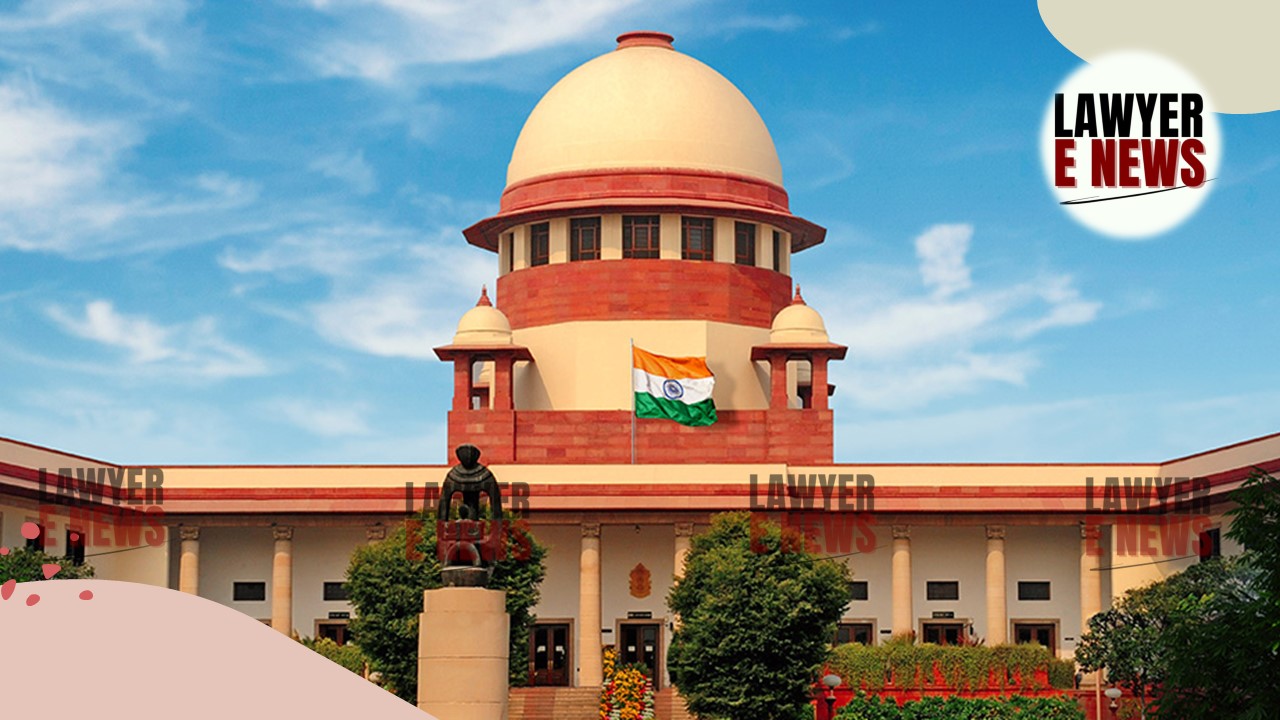-
by sayum
17 February 2026 5:32 AM



Where the Machine is Purchased to Expand Business and Not for Self-Employment, Buyer is Not a 'Consumer — Supreme Court of India dismissed a Special Leave Petition challenging concurrent findings of the State and National Consumer Disputes Redressal Commissions, which held that the petitioner was not a 'consumer' under Section 2(1)(d) of the Consumer Protection Act, 1986. The Supreme Court reiterated that the exception carved out for self-employment under the said section does not apply when the goods are used to expand an existing business rather than for individual livelihood through personal effort.
The Bench comprising Justice Sudhanshu Dhulia and Justice K. Vinod Chandran held: "It is not a case where the petitioner was himself operating the machine, but he had employed workmen who were doing the job for him. Under these circumstances, no matter how small the venture is, it cannot be called ‘self-employment’ for the purposes of the Act."
The petitioner had purchased a specialized laser cutting and bending machine to manufacture dies. Upon alleging defects rendering the machine non-functional, he approached the State Consumer Commission. The complaint was dismissed on the ground that the machine was procured for commercial purposes and hence the petitioner did not qualify as a 'consumer'.
The National Commission affirmed this dismissal, following which the petitioner approached the Supreme Court arguing that the purchase was for self-employment and not for a commercial enterprise.
The petitioner relied heavily on Paramount Digital Colour Lab v. Agfa India Pvt. Ltd. (2018) 14 SCC 81, where the Court had acknowledged that equipment purchased even for business may not amount to 'commercial purpose' if it was used exclusively for self-employment by the buyer to earn livelihood.
The Court differentiated the present case from Paramount Digital, stating: "In Paramount Digital, there were two unemployed graduates who had purchased the machine evidently for self-employment. But in the present case, the petitioner/complainant was already running a business as a commercial venture and admittedly, he had purchased the machine to expand his business."
Thus, it was not the mere use of the machine but the character of its use — whether for personal livelihood or business expansion — which determined the issue.
The Court clarified the scope of Section 2(1)(d) Explanation of the Act: "Despite ‘commercial activity’, whether a person would fall within the definition of ‘consumer’ or not would be a question of fact in every case."
Here, the admitted facts showed that the petitioner was running an existing business and was not directly using the machine himself for earning his livelihood. He had employed workmen to operate it.
The Supreme Court upheld the findings of the lower commissions and dismissed the petition:
“We find no scope to take a different view than the one taken by the State Commission and the National Commission.”
However, the Court provided limited relief: “In case the petitioner moves a Civil Suit within four weeks from today, he would be at liberty to rely upon Section 14 of the Limitation Act, 1963 and the same shall be dealt with in accordance with law.”
This judgment strengthens the principle that protection under the Consumer Protection Act for purchases under the 'self-employment' exception is available only when the buyer personally uses the goods for livelihood, not when they are used in an organized commercial business employing others.
Date of Decision: 18th March 2025
